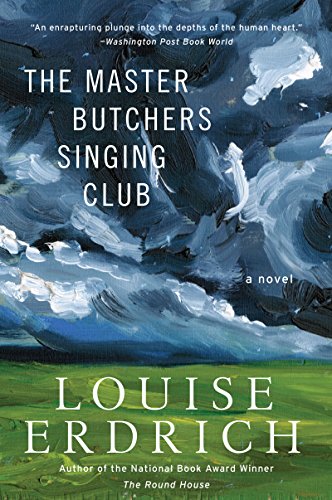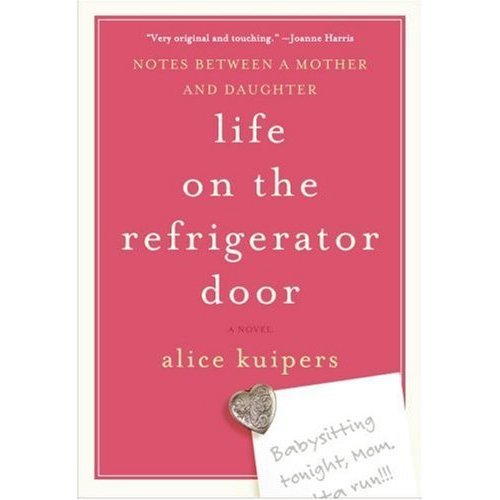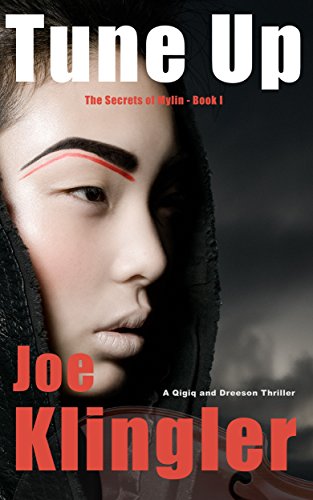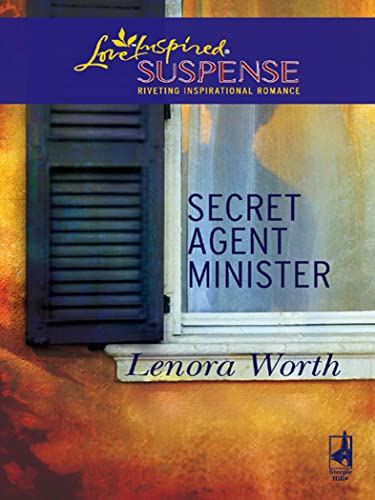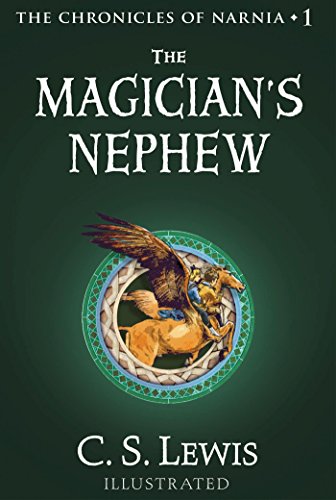On Friday we announced that C. Edward Baldwin’s Fathers House is our Thriller of the Week and the sponsor of thousands of great bargains in the thriller, mystery, and suspense categories: over 200 free titles, over 600 quality 99-centers, and thousands more that you can read for free through the Kindle Lending Library if you have Amazon Prime!
Now we’re back to offer our weekly free Thriller excerpt:
And here, for your reading pleasure, is our free excerpt:
Ben had known Dr. Gordon Shepherd literally his whole life, the good doctor having delivered Ben thirty-three years ago. Shepherd was a throwback, an old fashioned family doctor still apt to making house calls, and who still took pictures of every baby he delivered. He knew his patients intimately, taking great pride in remembering a lot of their birthdays, anniversaries, and graduation dates.
When Ben had called Shepherd early that Monday morning, Shepherd was already at the hospital making his rounds. At seventy-two years of age, the doctor had no intentions of retiring anytime soon, and Ben had no doubts that Shepherd accomplished more in a half-day than most doctors half his age accomplished in an entire week. When Ben had found out he and April were expecting a baby, he’d instantly thought of Dr. Shepherd. April had been skeptical at first, but it had taken just one consultation with the doctor for her to change her mind. His mind was as sharp as a tack, and as he told her, “I have over forty-one years’ experience delivering babies. I think I am quite capable helping get these two into the world.”
“Two?” Ben had asked, not quite trusting his ears.
“Two,” Shepherd repeated. “You two are having twins.”
Now it seemed the twins had been just as anxious to get here, as their parents had been to see them. A bit too anxious, Ben thought now as he stood outside the neonatal intensive care unit, watching as his newly arrived boys were each placed into an incubator. “This is all standard procedure,” Shepherd had assured him earlier as the boys were being weighed, measured, and prepared for transport to the NICU. “At thirty weeks, we have to make sure the babies are getting the right amount of minerals and fluids. We also have to monitor their body temperatures. And make sure they’re not losing too much fluid.”
“Are they going to be alright?” Ben asked nervously.
“I’ll be honest with you,” Shepherd told him. “This is not an ideal situation. Nothing takes the place of a mother’s womb. Right now the odds are about 40-60 that we could lose one or both of them. But we’ve been here before. We have experience in these situations. In addition to that, premature care has advanced a lot in the last few years.”
It had been an honest assessment. Ben expected no less from Dr. Shepherd. The doctor was an eternal optimist, but he was also a realist. If the situation was hopeless, Shepherd would have had no problem saying so. It wouldn’t have been the first time he’d had to give Ben sobering news.
When Ben was thirteen years old, he’d returned home from school to find his mother lying near death on the sidewalk in front of their home. A puddle of blood from a single gunshot had widened in her chest. Despite seeing his mother in such a horrific state, he’d remained calm enough to go inside their home, dial 911, and afterwards, the number of Dr. Shepherd; a name his mom had scotch-taped to the door of the refrigerator.
Shepherd made it to the emergency room fifteen minutes before the ambulance. As the paramedics rolled Lizzie Lovison into surgery, Shepherd pulled Ben into a waiting area and found a spot on a bench near the back of the room. “They will do everything they can for her,” he assured Ben. All around them the emergency room teemed with activity.
A little boy, perhaps five years of age, had accidently stepped on a rusted nail at his school and now complained loudly about having to get a tetanus shot. Meanwhile, a young mother, her head wrapped in a red scarf, rushed in, carrying a child in her arms and a little brown plastic bottle. She yelled at the attendants that the child had accidently swallowed prescription pills. One nurse grabbed the baby from the woman’s arms, taking it through double doors in one direction while another nurse led the woman down the hall in the opposite direction, all the while trying to calm the hysterical woman. Next, an elderly man came in complaining of chest pains. It was one thing after the other, some major, some minor, and all seemingly happening at one time. It was an ordinary Wednesday afternoon and it wasn’t even quite suppertime. Ben, with blood-speckled shirt and pants, sat stock-still next to Dr. Shepherd who had his arm around him, lightly patting his shoulder.
Thirty minutes later Shepherd said, “I’ll go back and see what I can find out.” A little while after that, he returned and motioned for Ben to follow him to a private room down the hall. Once they were inside the room, Shepherd closed the door, looked Ben squarely in the eyes, and said simply, “She’s gone.”
Ben stood at the glass window of the neonatal unit, quietly staring at the two newest Lovisons.
“…tably,” He turned his head around in the direction of the baritone voice. It was Dr. Shepherd, still wearing his scrubs.
“Sorry, doc,” Ben said. “I didn’t hear you.”
“I said April’s resting comfortably,” Shepherd repeated.
“Good. May I see her?”
“By all means,” Shepherd replied. “I need you as upbeat as you possibly can be. Assure her that everything will be alright.”
“Will it?”
“The odds are as I told you before. But you’re her husband and your love and support will give her better odds. She’s still weak, and I need her fighting to get stronger. So you need to pray for whatever strength and courage you need before you go in to see her. Okay?”
Focusing on the tubes attached to their babies, and becoming increasingly aware of the two of them lying in what looked like little metal coffins, Ben mouthed silently, “Okay.”
The walls in the hospital chapel were decorated in a hodgepodge of religious imagery. There were images of crosses, crescents, Buddhas, stars, moons, suns, Bibles, and all sorts of religious depictions in a harmonious display of spiritual tolerance. It had been a compromise on the part of Lincoln Memorial’s senior administration staff after there had been an uproar against the decision to remove all religious imagery from the hospital, including all Bibles, crosses, Korans, and anything remotely related to any religion of any kind.
Ben knelt on a mat at the front of the chapel in a place where an altar used to be. Now there was simply a table with candles and a bowl containing written prayers from anyone who’d felt compelled to write one. He hadn’t felt so compelled and for that matter, he wasn’t exactly sure what he wanted to say. For the longest time he just stared at the candles. His tenuous belief in God was only there at all because his mom had believed. However, in Ben’s mind, considering the way she’d died, there wasn’t exactly a compelling reason to believe in a higher power. And if he added in the fact that the so called higher power had allowed his father to abandon him and his mother, then God Almighty wasn’t exactly batting a thousand. At the very least, he hadn’t always shined so favorably on one, Benjamin Clyde Lovison.
Still, he loved his wife and their new family, and he wanted them all healthy and home, so he closed his eyes and prayed. He prayed for the wellbeing of his two little babies. He prayed for his wife April to get better, both mentally and physically. He prayed that he’d be a better man and a better father, much better than his own father had been. Finally, he prayed for the strength to face April with confidence, optimism, and knowledge that everything would be okay. After meditating silently for a few moments, he opened his eyes, thanked God for his time, and stood up. When he turned around, he stared right into tear-filled eyes.
She appeared to be in her mid-thirties. Her face was pleasant, but tired-looking. She looked as if she’d spent a night or two at the hospital. Her hair barely held form, strands of it popped out of place like weeds. She wore a knee length white skirt that sported the haphazard creases of having been slept in, as did her blue blouse. She fingered a small cross attached to a necklace which hung around her neck. Ben smiled. She managed to return a half-one as she eased past him to the spot he’d just vacated. He was almost out the chapel when he heard the crash behind him. He turned around. It was a chaotic mess. The woman had fallen over the table, knocking it over, sending the candles and the prayer bowl along with its contents hurtling to the floor. Tiny bits of paper flickered to the floor like disinterested snow.
***
Sarah Leeson had just lost her only child. She babbled that to him after he’d helped her up from the floor. She was unsure of what she was going to do now that both the men in her life were gone. What had she done wrong, she sobbed. “Why am I being punished,” she asked into the air, winging her arms out flamboyantly as if to punctuate the rhetorical question. Ben had no answers for her, so he simply and quietly escorted her to the cafeteria where he offered to buy her a cup of coffee, which she accepted, and some breakfast, which she declined.
At ten o’clock, the crowd in the cafeteria thinned. A few tables were randomly occupied with an assortment of visitors and hospital personnel. The conversations were varied and muffled, like those in a library before some bun-haired lady ordered complete and absolute silence. There was no such noise-monitor here, but sometimes circumstances beckoned silence. Ben led her to a table near the back, and then quietly and patiently sat with her.
Eventually he learned that the other man she’d lost had been her husband. He’d been stricken with cancer, though it had been a heart attack that delivered the fatal blow. Her son had been the victim of street violence. Ben vaguely recalled skimming an article about the incident in last week’s Duraleigh Standard. He listened without interruption, interjecting only when her pause seemed interminable, and then only to gently nudge her along. He asked her son’s age. Seventeen, she said. What a wonderful age that was, he said without thinking. She smiled and apparently understood he’d meant no harm by it. After all, her son’s death was still fresh to her as well. She asked his name, and afterwards if Ben was short for Benjamin. “Yes,” he answered. “But please call me Ben.” She repeated his name, “Ben.” It slid comfortably from her lips as if she’d known him longer than twenty minutes.
He thought about sharing his story about his mom. How he’d lost her to senseless violence as well. But the thought made him remember how he’d really felt after his mom had been killed. He’d wanted neither sympathy nor empathy. He’d wanted revenge.
“I’m an assistant district attorney,” he blurted out as if that fact alone was a sword to be used against any and all perpetrators.
She jerked ever so slightly and looked genuinely puzzled. Then, she abruptly pushed back from the table and started to get up. “I’m sorry,” she said, clearly flustered. “I didn’t mean to impose.”
Ben reached across the table for her. “Impose? You’re not imposing. Hold on a second. I’m one of the good guys.”
She pulled back beyond his reach and made it to her feet, snatching up her handbag in the process. “I’m so sorry. I’ve got to go. I have so much to do. I’m sorry.” She spoke rapidly and avoided looking at him as if she’d just found out his embarrassing secret.
“Sorry about what?” Ben asked following behind her. He had to break into a light jog.
“Please Mr. Lovison,” she said in a quavering voice. “Let me go. I have things I need to take care of.”
Mr. Lovison? Just a few moments ago, he’d been Ben. Why was she acting so formal all of a sudden? He stood a few feet back from her and watched as she entered the empty elevator. She punched the call button and then turned her gaze to her shoes as the elevator doors closed.
In Ben’s experience, some people on the low rungs of education and income held a deep distrust of the law and the people sworn to enforce it. That distrust often manifested itself through unreasonable fear or unfathomable hate. As one moved up the income and education scales, distrust gradually became understanding of the rules of law, and with that understanding, often came a deep respect for those individuals entrusted with defending and enforcing it. Of course, amongst the extreme upper end of the income scale there was sometimes a feeling that the rule of law could sometimes be a nuisance, and that policeman, prosecutors, and judges were mere lowly public servants, apt to overstepping their bounds from time to time.
Sarah Leeson’s behavior had been surprising only in the sense that she had appeared to be an educated woman of at least modest means. But then again, there were always exceptions to every rule. As he approached the hospital room where his wife had been moved, Ben dismissed thoughts of Sarah. He paused at the closed door. He heard voices inside the room.
He opened the door to find Mayo Fathers standing over April’s bed, smiling widely. April, though she looked a little feeble, smiled too. She had a new mother’s glow and she seemed…happy. Tired, but happy.
“There he is,” she said in a high whisper when she noticed him standing in the doorway.
Mayo turned around. “Congratulations, Ben. Twins, huh?”
“Yes, thank you.”
“Mr. Fathers told me what a decent and honorable young man you were growing up. He said our boys will be fortunate to have you for a father.”
“I appreciate the compliment, Mayo.”
“Well, it’s the truth. I never had any trouble out of this one. He always had a deep respect for authority.” He smiled at April. “And you sweet one. Call me Uncle Mayo. We’re family.”
April smiled weakly, “Sure, Uncle Mayo.” She closed her eyes and seemed to nod off.
“I called your office and they told me what happened,” Mayo said to Ben.
“You didn’t have to rush down here.”
“I had someone else here to visit anyway.”
“Anything serious?” Ben quizzed.
“Nothing you should be concerned about,” Mayo deflected. “How are those babies?”
“Fine,” Ben said hurriedly also wanting to deflect. He nodded ever so slightly toward his wife.
Mayo caught the hint and smiled awkwardly.
“What did you want?” Ben asked rather harshly before softening it with, “You said you’d called my office.”
“Uh, right,” Mayo said, appearing somewhat surprised at the tone of the first question. “I wanted to confirm your participation at next week’s conference. But I guess in light of the arrival of the babies, you probably won’t make it.”
“No, I can make it. It’s an opportunity to give back.”
“Great,” Mayo said. “I also got a confirmation from Caleb.”
April opened her eyes and perked up a little at the mention of Caleb’s name. “Caleb Dawson, Ben’s old friend?”
“One and the same,” Mayo said. “The Bureau is giving him a couple of days off and he agreed to do it.”
“I can’t wait to meet him,” April said. “I’ve heard so much about him.”
“I don’t talk about him that much,” Ben said, obviously embarrassed.
“They were two peas in a pod at one point,” Mayo offered. “Then Caleb’s father came back and moved the family away. But Caleb has always said the time he’d spent at Fathers House helped make the difference in his life. He and Ben are what the home is all about. Next week I plan to showcase both of them. Fundraising will go through the roof.”
“Anything I can do to help, just let me know,” Ben said.
“Just show up,” Mayo said as he walked toward the door.
After Mayo left, April looked warily at her husband. “Why don’t you call him Uncle Mayo?”
“Huh?” Ben asked.
“Uncle Mayo. I have never heard you call him that. But he says family calls him that. But you don’t. Why?”
Ben thought about her question for a moment. The answer was simple really. When he’d first started going to Fathers House he’d called Mayo, Mr. Fathers. After moving into Fathers House, he’d tried briefly calling him Uncle Mayo like everyone else had. But it felt uncomfortable to him doing that. Mayo wasn’t his uncle. He was of no blood relation, kind deed or no kind deed. So one day, Ben dropped the uncle moniker and started calling him Mayo. But he didn’t tell April any of that, instead he said, “I don’t know.”
It didn’t matter. It wasn’t a pressing concern for April. She yawned and asked, “How do our babies look?”
Ben kissed his wife on the forehead. “Beautiful. Both of them are simply beautiful.”

